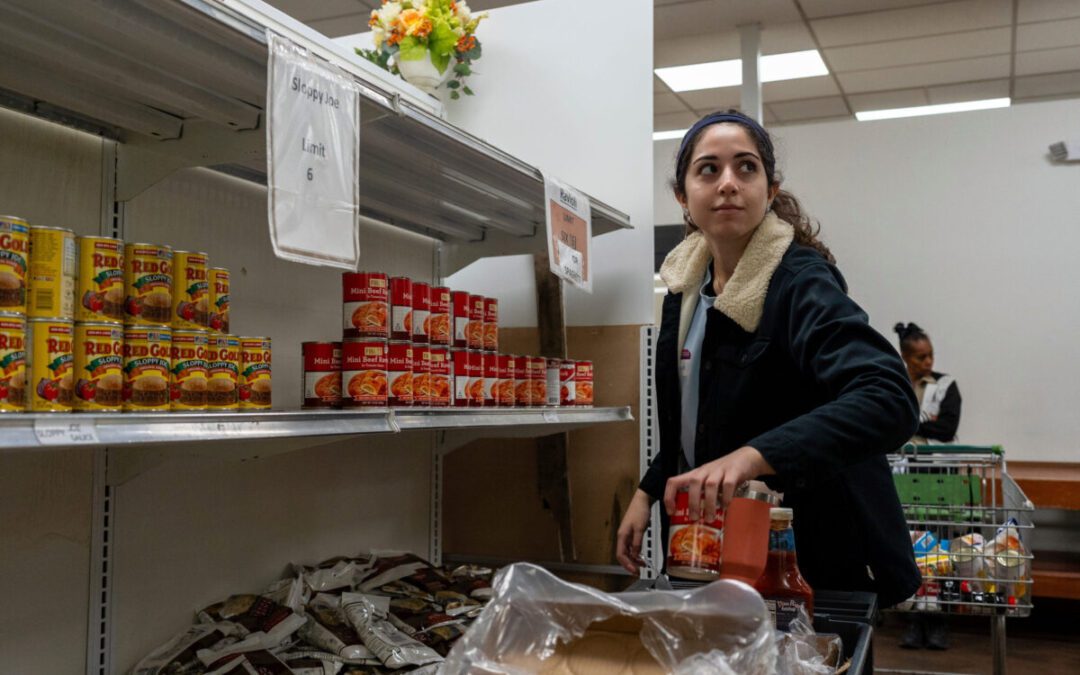
On Monday, April 8, folks across the country will be able to witness a solar eclipse, with millions in the path of totality. You probably have some questions about what we’ll be able to see here in Michigan.
MICHIGAN—There’s a lot of excitement right now about Monday’s solar eclipse. And that’s understandable—these events, especially those with a path of totality across the US, are rare.
We’re answering some of the most common questions we’ve seen online regarding the eclipse.
What is a total solar eclipse?
According to NASA, a solar eclipse happens when the moon passes between the sun and Earth, casting a shadow on Earth that either fully or partially blocks the sun’s light in some areas. The area where the sun’s light is entirely blocked is called the path of totality.
The reason Monday’s eclipse is such a big deal is because the path of totality will stretch across a swath of the US—including a very small portion of Michigan.
NASA adds that many more people will be able to witness Monday’s eclipse compared to the one in 2017. An estimated 31.6 million people live in the path of totality this year. Totality will also last longer during this eclipse than in 2017.
But many places, including all of Michigan, will at least be able to witness a partial solar eclipse.
When will I be able to see the eclipse?
Here in Michigan, the eclipse will begin around 2 p.m., reaching its maximum sometime after 3 p.m., and end about an hour later.
For exact times and eclipse coverage percentages in your area, check out this tool via the Detroit Free Press.
Will I be able to see totality in Michigan?
Only a small portion of Michigan near the Ohio border—including Michigan’s famous Lost Peninsula—will be able to witness totality.
In Monroe County, the community of Luna Pier is preparing for a large influx of people to witness the eclipse. Bridge Michigan reports that nearby hotels are already booked up.
In the Mitten’s major cities, including Detroit, Lansing, and Grand Rapids, coverage will be in the high 90 percent. The further north you get, the lower that coverage becomes, with Traverse City getting about 88% coverage and Marquette getting 79%.
The weather will also play a role in how well you’ll be able to see the eclipse. Stay tuned to your local forecast for updates on cloud coverage.
Do I need eclipse glasses?
Absolutely. Don’t try to look at the eclipse without special glasses. Specifically, glasses with the American Astronomical Society’s ISO 12312-2 standard.
Many major Michigan retailers, including Meijer, are selling eclipse glasses.
At this point, many online retailers won’t be able to deliver in time for the eclipse. If you can find glasses that’ll get here in time, please make sure they are legitimate glasses adhering to the 12312-2 standard.
When is the next solar eclipse?
After Monday’s eclipse, NASA says the next total solar eclipse that can be seen from the contiguous United States won’t be until Aug. 23, 2044.
That is, unless you’re willing to travel to Alaska—they’ll be in the path of totality in 2033.

Michigan families, food banks brace for looming SNAP pause
The looming pause in food assistance benefits for 1.4 million Michiganders next month has families all across the state anxiously scrambling to plan...

The Social Security Administration is no longer issuing paper checks. Here’s what you need to know
The Social Security Administration (SSA) has switched to electronic forms of payment. Here’s how you can set up your automatic payments with ease....

At vigils, Michiganders remember those lost in Grand Blanc Township church attack
As the sun went down in Grand Blanc on Wednesday, Oct. 1, community members gathered at two area vigils to find comfort in their faith and to...

What we know about the deadly shooting at a Michigan Mormon church
At least 100 federal investigators are responding to an attack in a Michigan community where a former Marine crashed a pickup into a Mormon church...

Study finds high risk of injury or death in motorcycle-deer collisions
By Eric Freedman, Capital News Service LANSING – Motorcycles and deer don’t mix. And motorcyclists are especially vulnerable to injury or death when...





